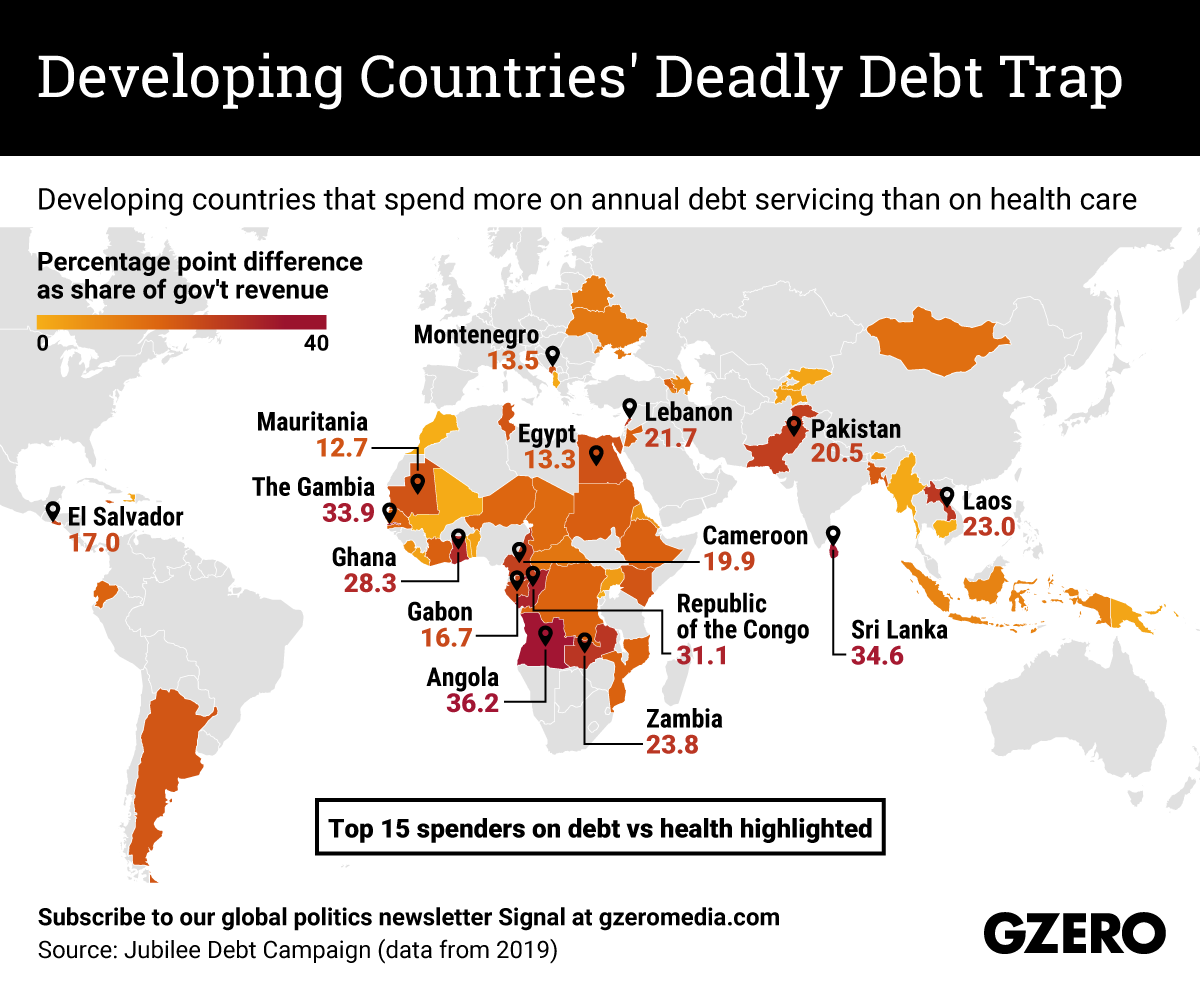May 19, 2020
The head of the IMF has already warned that the state of the global economy is "worse than our already pessimistic projections." But while the pandemic is taking a huge economic toll on every country in the world, many emerging-market economies, which currently owe a collective $8.4 trillion in foreign debt, face a particularly grim tradeoff between paying their bondholders or funding their hospitals. Even before the coronavirus crisis, 64 countries spent more money annually servicing their external debt payments than they did on healthcare. Now, the global health emergency is taxing their underfunded healthcare systems, complicating attempts to contain the virus. Many countries have already pleaded for emergency debt relief. Here's a look at the countries that spend more on annual debt servicing than on healthcare.
More For You
- YouTube
In this Quick Take, Ian Bremmer examines what may come next in the US-Israel war with Iran as the Trump administration signals significantly larger military operations ahead.
Most Popular
FILE PHOTO: Canadian Prime Minister Mark Carney and India's Prime Minister Narendra Modi shake hands before posing for a photo during the G7 Leaders' Summit in Kananaskis, in Alberta, Canada, June 17, 2025.
REUTERS/Amber Bracken/File Photo
Indian Prime Minister Narendra Modi and Canadian Prime Minister Mark Carney struck a series of deals during a meeting in New Delhi on Monday, including a 10-year nuclear energy deal under which Canada will provide India with uranium.
A satellite image shows black smoke rising and heavy damage at Iranian Supreme Leader Ayatollah Ali Khamenei's compound, following strikes by the United States and Israel in Tehran, Iran, on February 28, 2026.
Pleiades Neo (c) Airbus DS 2026/Handout via REUTERS
Supreme Leader Ali Khamenei is dead, the conflict is spreading, and US President Donald Trump still isn’t clear on who he wants to run Iran.
Shipping in the world’s most crucial oil chokepoint has nearly ground to a halt after at least four tankers were targeted in Iran’s retaliation to US and Israeli strikes on Saturday.
© 2025 GZERO Media. All Rights Reserved | A Eurasia Group media company.
